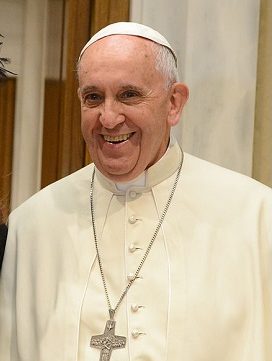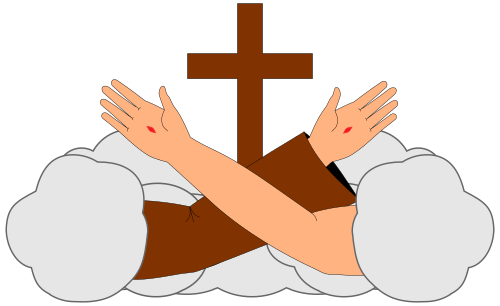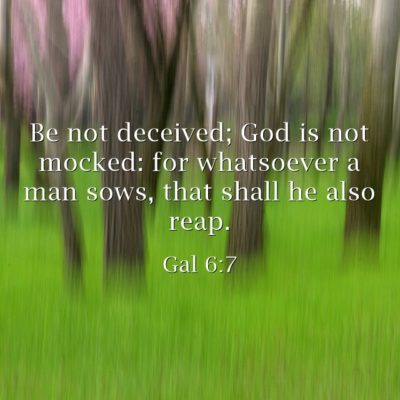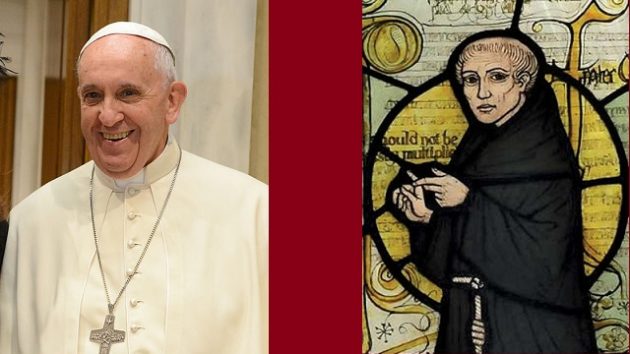How Two Men Fundamentally Transformed the Catholic Church

Pope Francis
Shortly after a papal conclave elected Pope Francis as the 266th Pope of the Roman Catholic Church, the ex officio Bishop of Rome and sovereign of Vatican City, a Rabbi asked me what I thought about Pope Francis. I said to him, “As a Catholic I want a Church that changes the world, not one that changes with the world.”
I did not realize, until now, how prophetic that statement has become. It is also prophetic that Cardinal Jorge Mario Bergoglio, a Jesuit priest from Argentina, took the name of Francis replacing Pope Pope Benedict XVI, who resigned.
Why prophetic? Let me count the ways.

A cross, Christ’s arm and Saint Francis’ arm, a universal symbol of the Franciscans.
Pope Francis named himself after Saint Francis of Assisi. Saint Francis of Assisi created the Franciscan Order. Why is this important? Because it was William of Ockham, a 14th Century Franciscan, who fundamentally transformed the Catholic Church by replacing “scholasticism” with “nominalism.” William of Ockham is best known today for his espousal of metaphysical nominalism known as “Ockham’s Razor,” which is named after him.
In his book “The Benedict Option: A Strategy for Christians in a Post-Christian Nation”, Rod Dreher wrote:
In his final book The Discarded Image, C.S. Lewis, who was a professional medievalist, explained that Plato believed that two things could relate to each other only through a third thing. In what Lewis called the medieval “Model,” everything that existed was related to every other thing that existed, through their shared relationship to God. Our relationship to the world is mediated through God, and our relationship to God is mediated through the world.
This medieval “Model” is known as “scholasticism.” Dreher goes on to state:
The core teachings of Scholasticism include the principle that all things exist and have a God-given essential nature independent of human thought. This position is called “metaphysical realism.” From this principle comes what Charles Taylor identifies as the three basic bulwarks upholding the medieval Christian “imaginary” – that is, the vision of reality accepted by all orthodox Christians from the early church through the High Middle Ages:
- The world and everything in it is part of a harmonious whole ordered by God and filled with meaning – and all things are signs pointing to God.
- Society is grounded in that higher reality.
- The world is charged with spiritual force.
These three pillars had to crumble before the modern world, today’s secular world, could arise.

William of Ockham
And crumble they did starting with Ockham’s Razor. As Dreher noted:
The theologian who did the most to topple the might oak of the medieval model – that is, Christian metaphysical realism – was a Franciscan from the British Isles, William of Ockham (1285-1347). The ax he and his theological allies created to do the job was a big idea that came to be called nominalism.
Realism holds that the essence of a thing is built into its existence by God, and its ultimate meaning is guaranteed by this connection to the transcendent order. This implies that Creation is comprehensible because it is rationally ordered by God and a revelation of Him.
[ … ]
Medieval metaphysicians believed nature pointed to God. Nominalists did not. They believed that there is no inner meaning existing objectively within nature and discoverable by reason. Meaning is extrinsic – that is, imposed from the outside, by God – and accessible to humans by faith in Him and His revelation alone.
If this sounds like plain good sense to you, then you begin to grasp how revolutionary nominalism was. What was once a radical theory would, in time, become the basis for the way most people understood the relationship between God and Creation. It made the modern world possible – but as we will see, it also set the stage for man enthroning himself in the place of God. [Emphasis added]
Ockham’s Razor set the stage for the ideal of “individualism,” government as God and relativism in Western culture. It lead inextricably to what we are seeing in the Catholic Church and Western culture with the election of Pope Francis.
The Catholic church has embraced the modern world and wants to attract those who believe in it to the Church. This is a fools errand and will only lead to the second fundamental transformation of the Catholic Church. A church addicted to Ockham’s opioid named nominalism. You can get your fix the next time you attend mass.
Dietrich Bonhoeffer penned the words, “Cheap grace is grace without discipleship, grace without the cross, grace without Jesus Christ, living and incarnate.”
Today we are reaping what these two men have sown – cheap grace.




Leave a Reply
Want to join the discussion?Feel free to contribute!